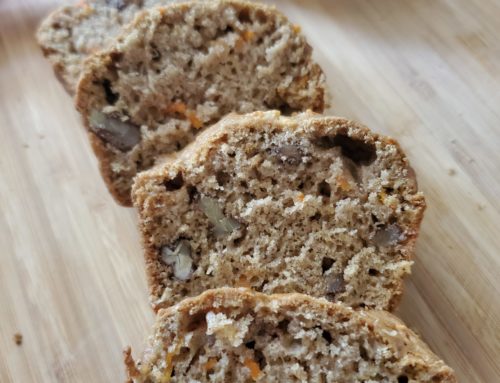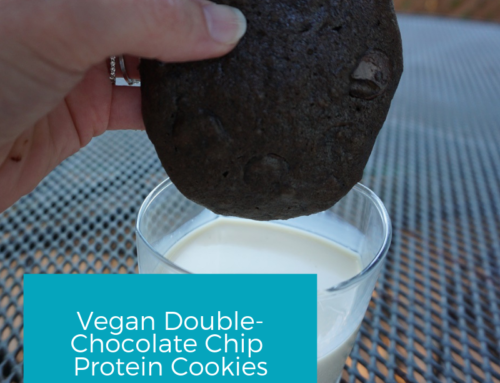
For years, it was assumed that the protein only came in the form of meat and it was the best way to build muscle. Animal proteins make up the majority of protein sales and there is still a lot of debate over dietary protein but one thing everyone agrees on is the quality of the protein matters more than the type of protein. Protein quality is what builds muscle and there are other options than animal based proteins. Plant-based protein sales are soaring and the demand for plant proteins is growing.
There are several different factors that are driving the need for plant-based foods, including concerns for personal health, the rising cost of meat, concerns about genetically modified organisms (GMOs), the environmental impact of meat production, how animals are treated, and personal beliefs.
Unlike animal protein sources, plant-based protein can offer fiber, antioxidants, and phytochemicals. Multiple studies have shown individuals that consume a diet high in plant-based foods is associated with fewer chronic diseases, such as cancer, heart disease, stroke, and obesity. It’s clear that plant foods play an important role in overall health, including being a protein source.
The Breakdown of Protein
When we’re talking about protein, we are more accurately referring to amino acids, the building blocks of protein. There are 20 different amino acids that make up proteins that humans can digest and should consume. There are nine that are considered essential, meaning your body needs them and cannot make them so we need to consume them in our diets. Non-essential proteins are important but are called non-essential because our body can make them. Proteins are essential for creating hormones, enzymes, antibodies, and building and repairing muscle repair. Protein can also be helpful in managing weight, since it’s a good filler and can help you feel full for longer periods of time.
The main difference between animal protein and plant protein is their amino acid structure. Animal protein has been considered the king of protein because it considered a complete protein, containing all of the nine essential amino acids. Not all plant foods contain all nine essential amino acids. However, there are several plant sources that are considered complete, including quinoa, amaranth, buckwheat, soybeans, sea vegetables, hemp seeds, and chia seeds. Even if a single food does not provide all essential amino acids, eating a variety of plant-based foods and combining different food sources will ensure you are consuming all of the amino acids you need.
Eating a variety of protein sources not only ensures a complete amino acid profile, but gives you a better balanced diet. Beans and rice make a perfect food combination because rice has the amino acid methionine, which beans lack, and beans contain lysine, which rice is low in. So by eating beans and rice together, you now have a complete protein. To ensure you’re getting enough complete proteins, focus on enjoying a variety of plant-based sources, such as lentils, beans, seeds, grains, and soy throughout the day. Blending different plant-based proteins can provide a complete source of protein and deliver a satisfying diet full of flavor and textures.
Amino Acids
Protein Recommendations
The Recommended Dietary Allowance (RDA) for protein for adults is 0.8 grams per kilogram of body weight. The RDA is the amount of a nutrient you need to meet your basic nutritional requirements. It’s a way to help you manage your weight and stay healthy. To determine your RDA for protein, you can multiply your weight by pounds by 0.36, or use this online protein calculator. An example is a 35-year-old woman, who weighs 140 pounds and is sedentary, would need 51 grams of protein per day.
Plant Based Research
Until the past few years, plant proteins have taken a back seat to dairy proteins in the nutrition markets. However, with recent research and consumer demands, the availability of plant-based proteins is growing. Early research studies that compared whey protein to soy protein always showed whey as the better source for post-exercise muscle recovery and build. However, what the early research did not address is whey is considered a fast protein – its amino acids are delivered to the muscles quickly, where soy is considered a slower acting protein, prolonging the delivery of amino acid to the muscles. This has to do with the amounts of the amino acid leucine that whey and soy have. Soy has less than whey does, so in order to compare the two foods, the researchers needed to provide higher amounts of soy.
More recent research has focused on combining different plant-based proteins tougher and finding the right balance so these plant sources can provide enough doses of leucine and the result is these plant-based sources are comparable to whey protein. A study demonstrating the power of plant-based proteins placed subjects on a 12-week resistance training protocol and provided subjects with either a placebo, or 25 grams of pea protein or 25 grams of whey protein twice per day. There were no differences observed or measured in muscle growth in subjects consuming either the pea or whey protein. This is just one study demonstrating the effectiveness of plant-based proteins.
Plant-Based Protein Sources
The Bottom Line
Protein is a major player in your diet. Every time you eat a protein-rich meal, your body breaks down the protein into amino acids and uses those amino acids. Because protein plays such important roles in the body Registered Dietitians recommend consuming a variety of proteins from both plant sources and animal sources. Focus on choices that include plenty of whole, minimally processed plant foods at each meal and snack. Avoid filling up on highly processed protein sources and look for ways to combine different food sources together to meet your protein needs.
Recipes with Plant-Proteins
20 Healthy Vegetarian Grilling Recipes
Toast with White Beans, Tomatoes, and Avocado
[Tweet “What’s your favorite plant-based protein? Eat these recipes with plant-proteins!”]
What’s your favorite plant-based protein? What’s your favorite vegetarian recipe? Do you struggle with eating plant-based proteins?
References
Norton LE, Layman DK. Leucine regulates translation initiation of protein synthesis in skeletal muscle after exercise. J Nutr 2006; 136(2):533S-537S.
Reidy PT, Walker DK, Dickinson JM, Gundermann DM, Drummond MJ,Timmerman KL, Fry CS, Borack MS, Cope MB, Mukherjea R, Jennings K,Volpi E, Rasmussen BB. Protein blend ingestion following resistance exercise promotes human muscle protein synthesis. J Nutr 2013;143(4):410-6.
http://nutritiondata.self.com/








Leave A Comment